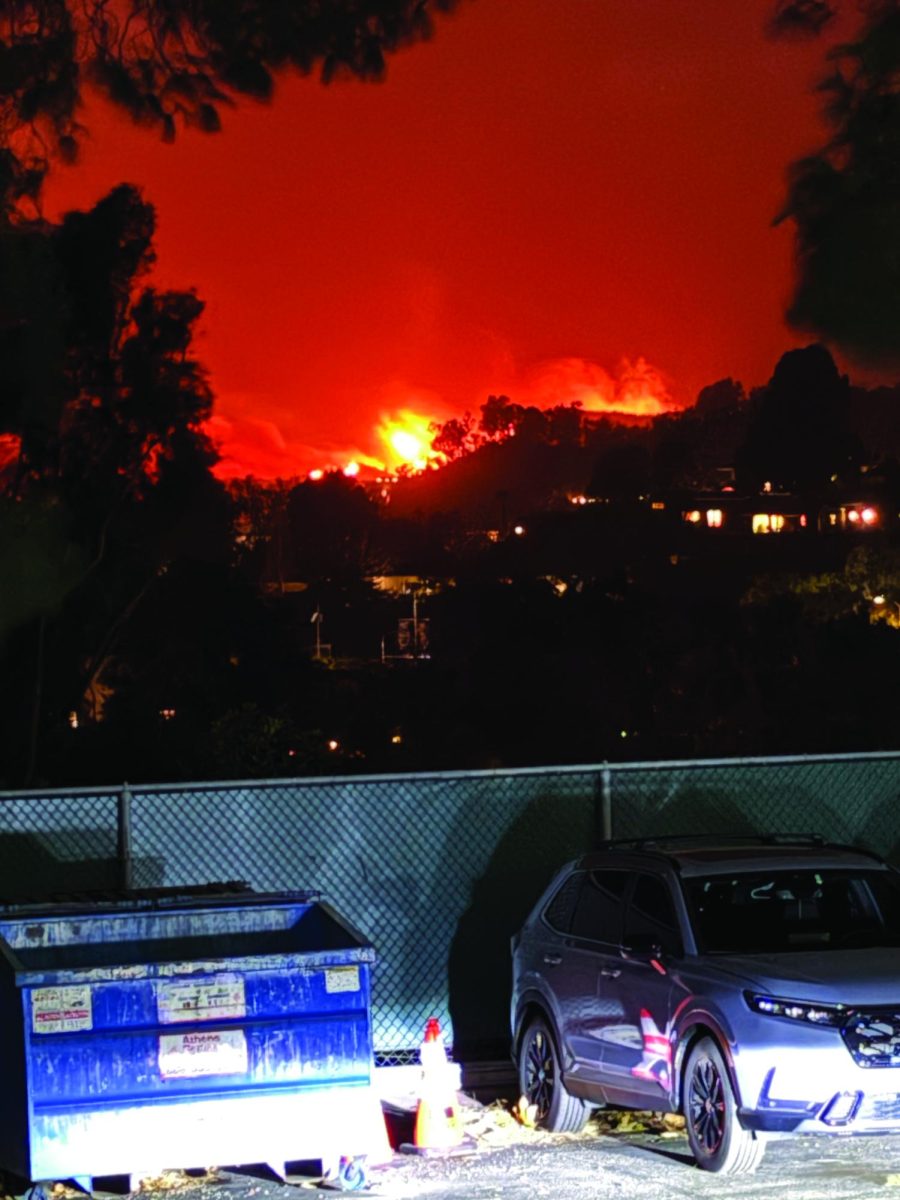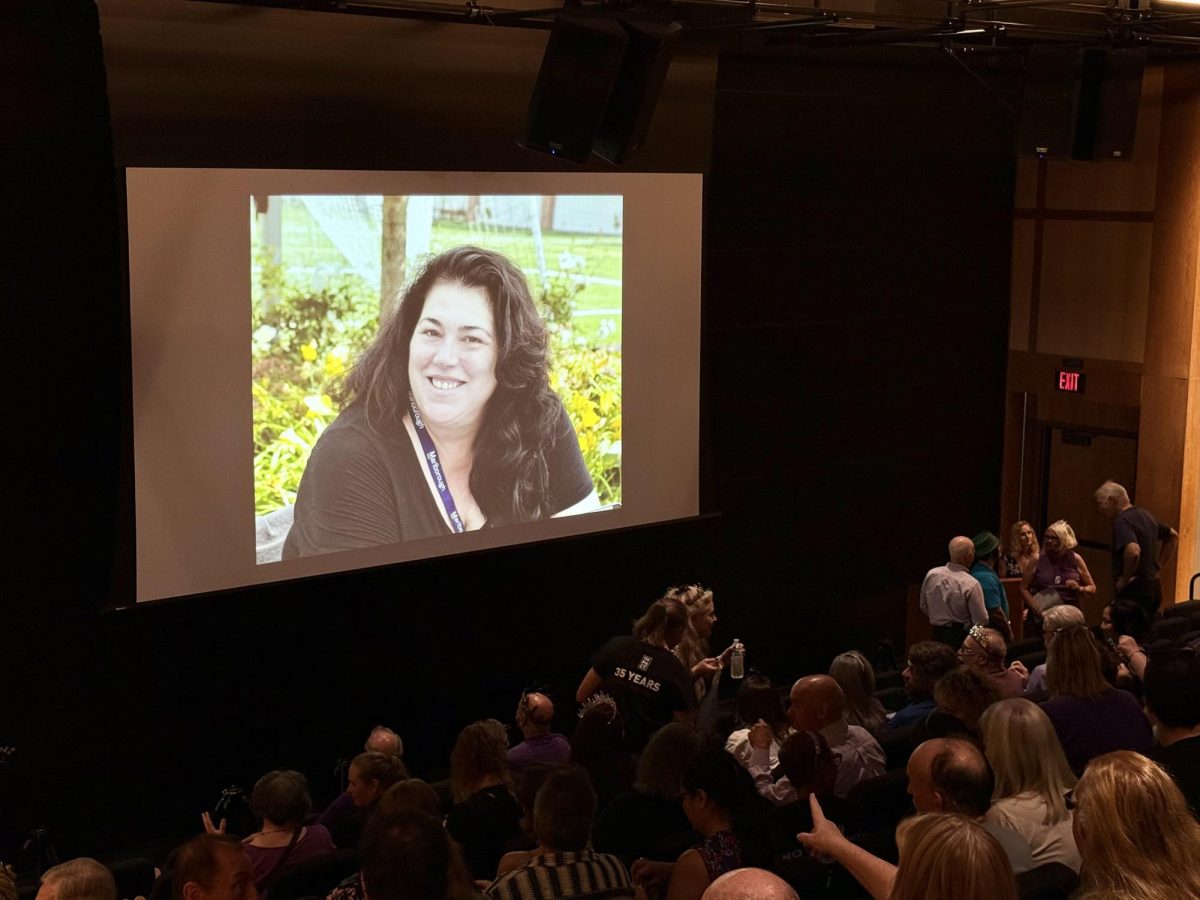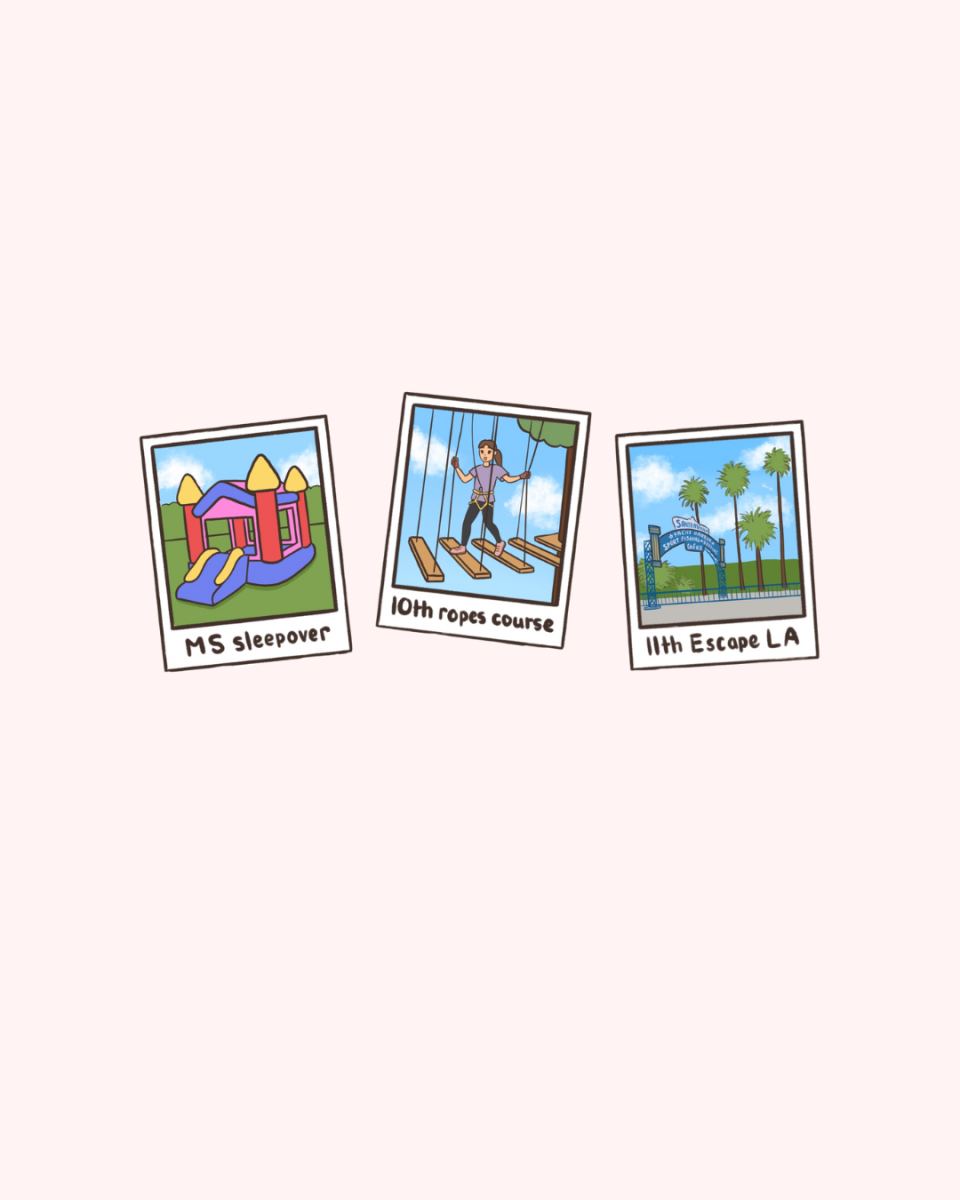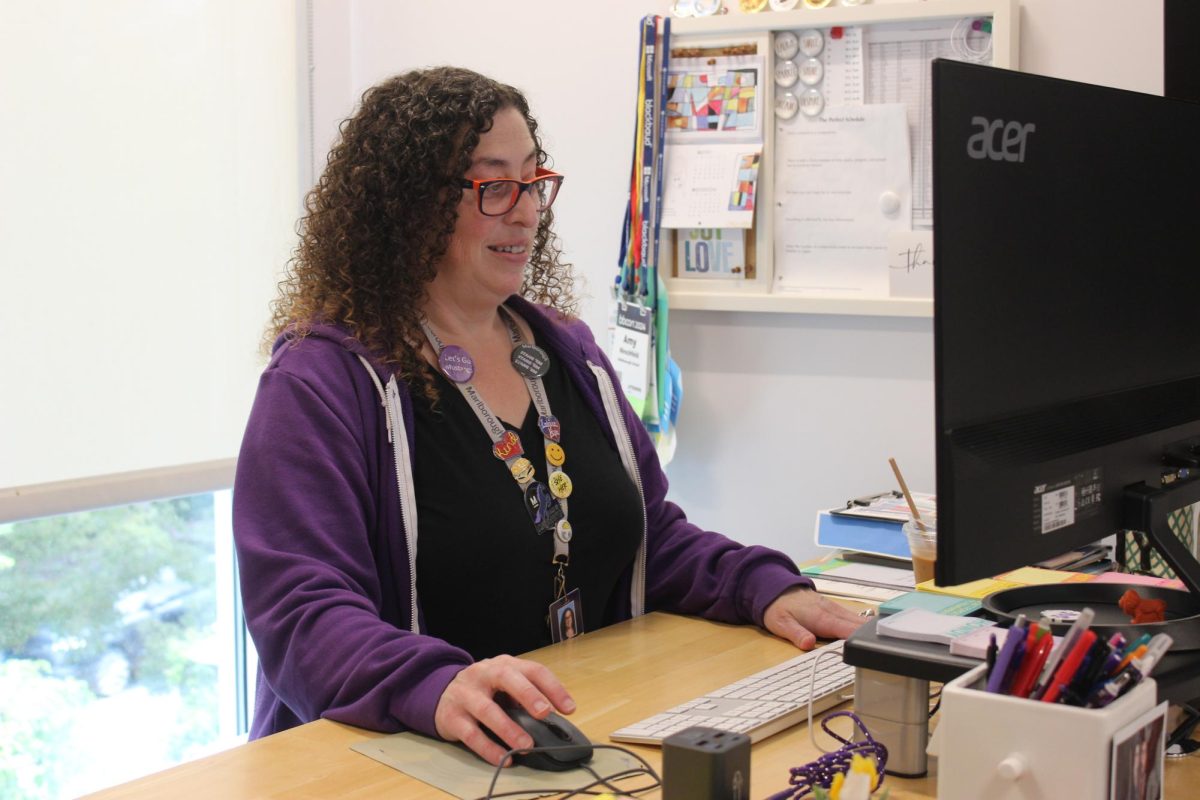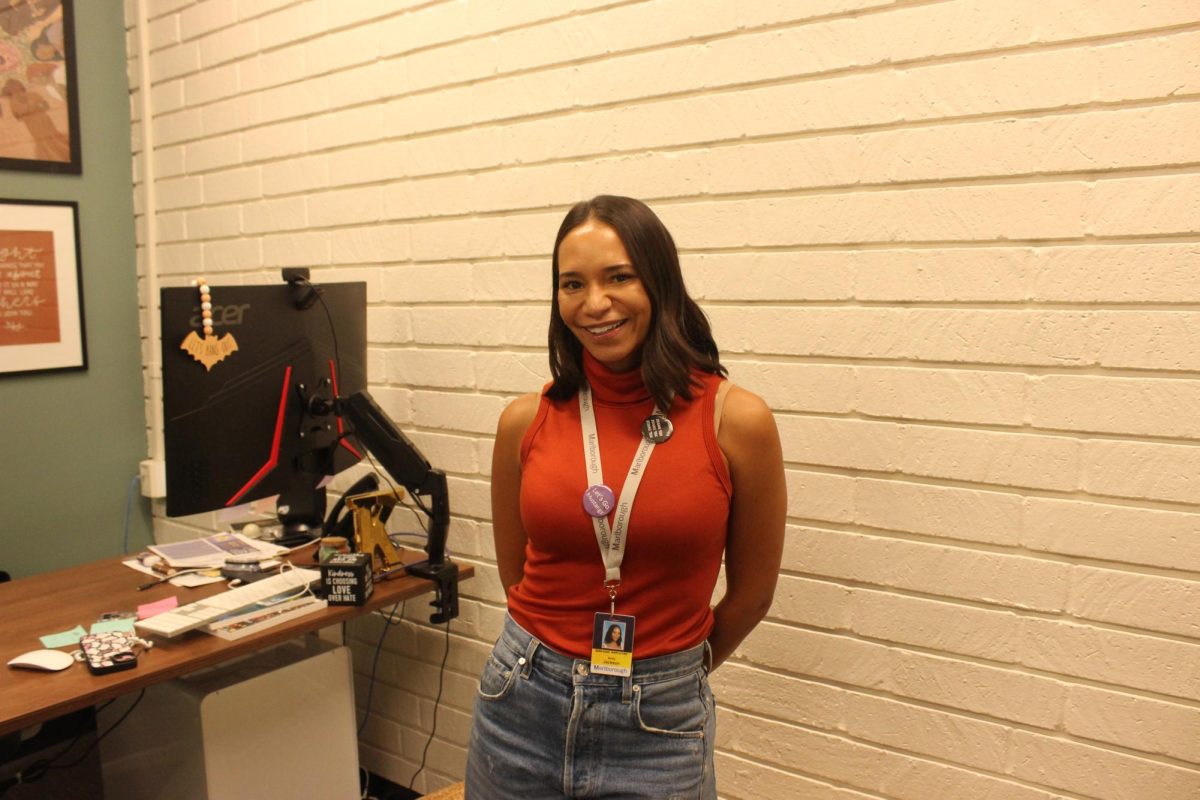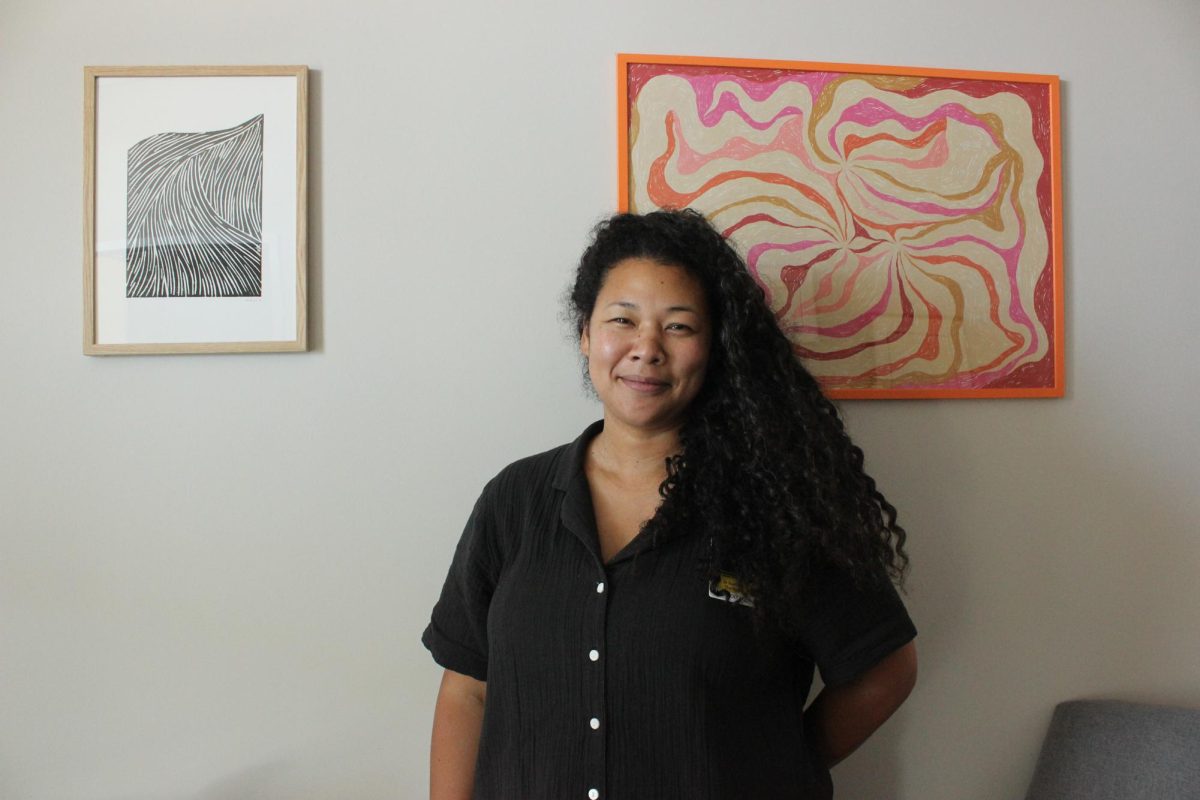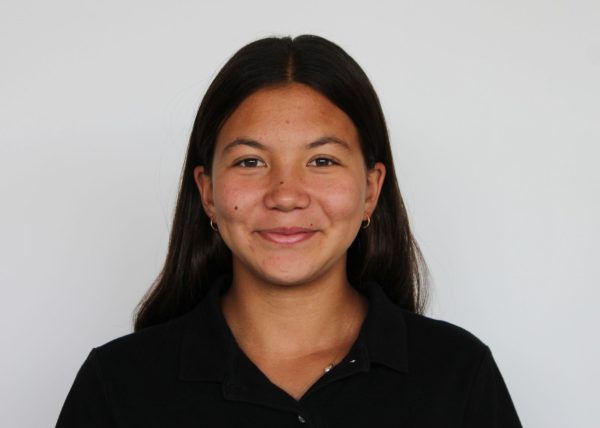On Jan. 7, UCLA students and faculty were ordered to leave due to the devastating fire that had broken out in the Palisades. While the campus was not under an official order by the city, the university evacuated all students in the interest of their safety and temporarily switched to online classes until Jan. 21.
UCLA’s campus bordered the official evacuation zone, and students could see the active fires from a distance. While most out- of-state college students did not return home due to the fires, Marlborough alumna Elsa ’24 evacuated with her family living in Los Angeles. Elsa said she felt “really lucky” to go home.
“Because we didn’t receive anything from UCLA in the first few days, we downplayed how big we thought the fires were going to get,” Elsa said as she recalled her experience before evacuating from campus. Once the fires posed a real threat, she said that UCLA kept the students updated on the evacuation plan.
“I was walking towards my friend’s dorm across the parking lot, and you could see the fire in the hills,” Elsa said.
Elsa said UCLA’s response is similar to Marlborough’s.
“It is very similar but there just happens to be 40,000 students who go here,” Elsa said.
Like Marlborough, UCLA students supported their community by holding drives to collect food, clothes and household products for students who lost their homes. Many students also posted GoFundMe campaigns for their peers and faculty.
Additionally, both schools emphasized the importance of emotional and mental well-being for all community members; Elsa said UCLA kept an open mind regarding academic pressures during this time by giving greater leniency about deadlines and attendance to class. Marlborough demonstrated a similar response, allowing students affected by the fire to engage in dialogue circles and providing support academically and beyond the school environment.
UCLA specifically worked to support their community by hosting a concert on Jan. 25 in which proceeds went directly to fire initiatives. Moreover, because of their proximity to the evacuation shelter at Westwood Recreation Center, UCLA students were able to support the Los Angeles community further.
“It’s a community experience because you could go to this concert or community fundraiser together,” Elsa said.
While UCLA received positive responses to their post evacuation outreach, many students, faculty and families have demonstrated concern about what they perceive to be a delayed notice to evacuate and the continuation of classes.
The safety of students was called into question by many students and families in terms of the proximity to the fire and their physical health. They believed UCLA failed to address the poor air quality even while many students wore masks due to the smoke and ash.
Elsa commented on the criticism the university received, including students’ unhappiness with the timeline of classes resuming. When offering her perspective on the situation, she felt the university assisted the community appropriately.
“I understand the way it was handled evoked a lot more fear in the students, but the way it was handled was the most efficient for a college of this size,” Elsa said.

